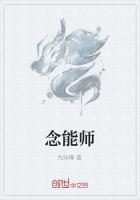That his temper was naturally hot, no one who looked at him could doubt.But he had it in such tight control, and it was so free from anything acrid or malignant, that it had become a good temper, worthy of a large and strong nature.With whatever vehemence he might express himself, there was nothing wounding or humiliating to others in this vehemence, the proof of which might be found in the fact that those younger men who had to deal with him were never afraid of a sharp answer or an impatient repulse.A distinguished man (the late Lord Chief Justice Coleridge), some ten years his junior, used to say that he had never feared but two persons, Mr.
Gladstone and Cardinal Newman; but it was awe of their character that inspired this fear, for no one could cite an instance in which either of them had forgotten his dignity or been betrayed into a discourteous word.Of Mr.Gladstone especially it might be said that he was cast in too large a mold to have the pettiness of ruffled vanity or to abuse his predominance by treating any one else as an inferior.His manners were the manners of the old time, easy but stately.Like his oratory, they were in what Matthew Arnold used to call the grand style; and the contrast in this respect between him and most of those who crossed swords with him in literary or theological controversy was apparent.His intellectual generosity was a part of the same largeness of nature.He always cordially acknowledged his indebtedness to those who helped him in any piece of work; received their suggestions candidly, even when opposed to his own preconceived notions; did not hesitate to own a mistake if he had made one.Those who have abundant mental resources, and have conquered fame, can doubtless afford to be generous.Julius Caesar was, and George Washington, and so, in a different sphere, were Newton and Darwin.But the instances to the contrary are so numerous that one may say of magnanimity that it is among the rarest as well as the finest ornaments of character.
The essential dignity of his nature was never better seen than during the last few years of his life, after he had retired (in 1894) from Parliament and public life.He indulged in no vain regrets, nor was there any foundation for the rumors, so often circulated, that he thought of reentering the arena of strife.He spoke with no bitterness of those who had opposed, and sometimes foiled, him in the past.He gave vent to no disparaging criticisms on those who from time to time filled the place that had been his in the government of the country or the leadership of his party.
Although his opinion on current questions was frequently solicited, he scarcely ever allowed it to be known, and never himself addressed the nation, except (as already mentioned) on behalf of what he deemed a sacred cause, altogether above party--the discharge by Britain of her duty to the victims of the Turk.As soon as an operation for cataract had enabled him to read or write for seven hours a day, he devoted himself with his old ardor to the preparation of an edition of Bishop Butler's works, resumed his multifarious reading, and filled up the interstices of his working-time with studies on Homer which he had been previously unable to complete.No trace of the moroseness of old age appeared in his manners or his conversation, nor did he, though profoundly grieved at some of the events which he witnessed, and owning himself disappointed at the slow advance made by some causes dear to him, appear less hopeful than in earlier days of the general progress of the world, or less confident in the beneficent power of freedom to promote the happiness of his country.The stately simplicity which had been the note of his private life seemed more beautiful than ever in this quiet evening of a long and sultry day.His intellectual powers were unimpaired, his thirst for knowledge undiminished.But a placid stillness had fallen upon him and his household; and in seeing the tide of his life begin slowly to ebb, one thought of the lines of his illustrious contemporary and friend:
such a tide as moving seems asleep, Too full for sound or foam, When that which drew from out the boundless deep Turns again home.















